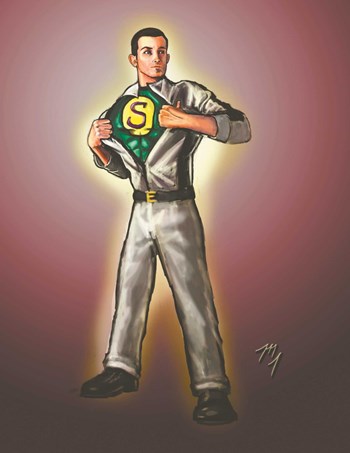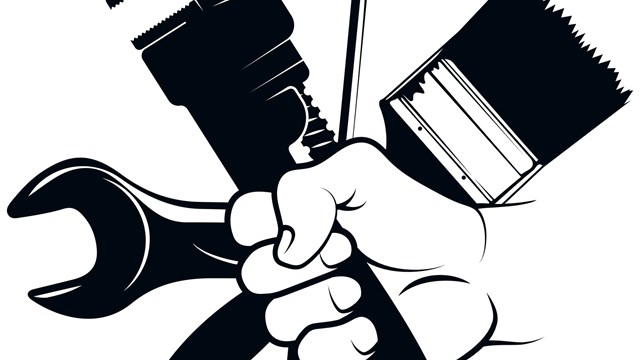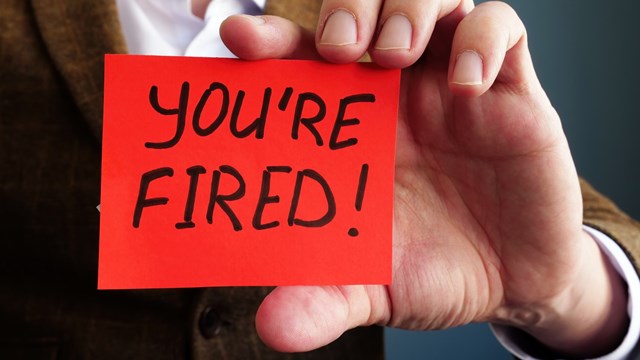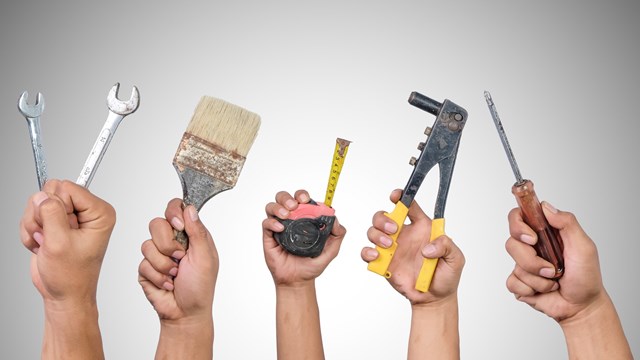
The life of a super is different every day, but it usually goes something like this: arrive at work each morning; check in with security for any possible situations that have come up during the night; review any outstanding work orders and walks the property, making sure that all of the building mechanics—such as the cooling towers, boilers, pool, etc., are all running properly; if anything is wrong, log in the problems. Then, meet with staff, divide the work orders for the daily and holds daily, weekly, and monthly meetings to follow up and make sure everything is running smoothly.
In the past, the responsibilities of a building super or chief engineer could have been described as ‘it’s a dirty job, but somebody has to do it.” Building superintendents get their hands dirty from time to time, but nothing compared to the way job was 20 years ago. Think back to how the building or chief engineers, also known as ‘supers’ or ‘resident managers’ in some parts of the country—were portrayed on television or in movies. They were the guys with the huge crowded key ring who were greased up and dirty from the repairs they made. Remember Schneider from “One Day at a Time?” He didn’t really have authority to do more than basic repairs (although Schneider was a special case). Oh, how times have changed.
Today, the role of the super has evolved, and it's also become more varied. “A superintendent has a protocol. He has his boilers to check, his air conditioning system in the summer, heating system in the winter. He checks his building, his walls, his rugs, sets the protocol for housekeeping, the mechanics, how they go about doing their work. There’s a preventative maintenance schedule that he has to keep up with. Scheduling workers. Just keeping the place alive,” says Raul M. Maldonado, master superintendent in Hackensack for RCP Management.
A super in one building could have a different combination of responsibilities than the person with the same title down the street. Commonly, supers are responsible for maintaining high-rise condominiums and property grounds, including all building systems, including elevators, fire alarms, fire pumps, sprinklers, emergency generators, electrical, domestic water, boilers, irrigation, HVAC systems and all associated equipment, swimming pools and Jacuzzis, gym equipment and health club amenities. They are also responsible for inspections and repairs as needed, working with vendors and hiring and training maintenance personnel.
“You’re not a master of anything, but you have to be a jack of all trades. You have to communicate with all the levels of contracting, and address all the levels of problems that you have in the building—water to electricity, to engines and emergency generators, exhaust fans on the roof—you have know a little botany to talk to the landscapers. You have to know your electronics to deal with the low frequency drives that are installed in motors in sites. You have to have a lot of books, let’s put it this way,” says Maldonado.
Qualifications
Defining the perfect candidate for the job of a building super or engineer is almost an impossible task, since every building is different, the kind of person they need will be different.
There's no formal benchmark for supers when it comes to their qualifications for the job. Some might have a college background in engineering while others might have extensive experience in building maintenance or construction. “I went to trade school for plumbing, a school for air conditioning. You do want to get involved in these programs that are out there. Unfortunately right now there’s no superintendent program because it entitles so much, nobody has taken the steps to write the book. A superintendent has to know everything,” says Maldonado.
Supers also need to know their role and how it fits in with the other layers of building maintenance. They need to be vigilant and know the intricacies of buildings that only someone who's there every day can notice, and respond to changes in codes and technology.
“The last few years, we’ve been trying to go green with everything. The energy efficiency is more being promoted these days,” says Steven Teri, resident manager of 1055 Park Avenue Co-op in Manhattan, supervised by Douglas Elliman. “You have to ask: is it cost effective? There’s a role of trying to save money. But now it’s saving money and energy. Sometimes you have to spend a couple of dollars to save a couple dollars. There was a 32BJ initiative to have 1,000 supers take training to become green certified. This is the second year they did that as well. And they’re to get another group of supers to do it again. Especially in Manhattan, they want to get the supers to work together to get the buildings green,” he says.
Supers also have somewhat of a thankless job in the schematic of responsibilities of the upkeep of a building. Supers don't score the winning goal, or make the big tackle, but they're constantly responding to the building, setting those blocks, to continue the sports metaphor—doing the little things that doesn't get much of the glory.
“A lot of people don't really know what I do,” Maldonado explains. “My day starts at six in the morning. What they don’t see is what you do super early in the morning, so you’re really behind the scenes all the time. The nuts and gears and bolts, that’s all behind the scenes. Sometimes you’re by yourself out there, and you have to know what you’re doing,” he says.
Supers or building engineers should also be able to adapt their personalities based on the situation, especially since they will encounter very strange or demanding situations.
“We’re the first responders to everything that happens, and the superintendent becomes part of the family. It’s almost like being a small mayor in a small city,” Maldonado says.
Part of the thankless work is also using those necessary communication skills to make sure unit owners are being responsible with their property so it's not affecting the well-being of the building. In order to make sure things are getting done on a timely basis, supers also need to establish protocol and keep things organized. “Shareholders will tell the concierge, ‘my faucet’s leaking,’ or ‘my air conditioner isn't working,’ and I’ll determine if it’s a building issue or the shareholder responsibility. They know they have to call the front desk—they can’t just grab us at the lobby, because we’ll forget if it's not written down,” says Teri.
Union or Not?
Unlike New York City, most superintendents do not belong to a union, though it's not uncommon for supers in New Jersey to have experience working in the city at some point. Most management company employees do not belong to a union. Based in Newark, 32BJ SEIU started developing a presence in New Jersey just ten years ago, and now have about 10,000 property service members from the state. “There’s a lot of buildings that are non-union buildings, and they’re run totally differently. Once you say 'union' [supervisors] kind of like back down right away, in terms of what your job duties are. I was asked if I can powerwash the outside of the building. I’m a ‘yes’ guy and said ‘sure, no problem.’ An agent told me that it’s not part of my job and I don’t have to do it if I don’t want to. They wouldn’t be able to write me up for that. In other jobs, they say jump, you say how high,” says Teri.
Workers have their own training fund, a joint labor-management partnership that offers training to eligible participants at no cost. According to 32BJ, they are concentrated mostly in the Northeast— in Massachusetts, New Hampshire, Rhode Island, Connecticut, New Jersey, New York, Delaware, Pennsylvania, Maryland, Northern Virginia, and Washington, D.C.—but their reach extends to southern Florida.
“In some cases non-union workers get a better deal, but those are rare cases,” says Peter Grech, a resident manager in New York, who is also a member and Director of Education of the Superintendents Technical Association, a New York City organization for superintendents, resident managers and other building service workers. “The majority of non-union makes a little less money than union employees, but the responsibilities are no different.”
In New Jersey, Maldonado says that supers are meeting amongst each other without the aid of a union. When he worked in New York, “It was a good resource for assurance if you have a problem at the top, but besides that what we really needed was networking; supers talking to supers. We now have monthly meetings, talking about vendors that have better deals than others,” he says.
Getting Training
If someone wants to be a super or building engineer, they often start their careers as a doorman or porter and work way up taking classes to accelerate their knowledge. Property management companies and the union provide training in academics, computer instruction, and major aspects of the management and building services business. With less of a union presence in New Jersey, independent training programs are in the works, says Maldonado. “We’re starting a program in Bergen County Community College on the superintendent’s trades, which will probably help a lot once we get that going.”
As far as breaking into the profession, “Make sure you try to get your basic trades, basic carpentry, basic electricity, basic plumbing. I advise that supers that want to get involved to start with that. You have to always work your way up—the best job to start with is the porter’s job, because that’s where you get to see all the nasty stuff. Then you can move up to the maintenance stuff,” says Maldonado.
Gone are the days of the Duane Schneider’s (“One Day at a Time”) and Nathan Bookman’s (“Good Times”) of the past. In today’s world, supers have much more responsibility, including supervision of staff, reporting and other administrative duties. As one New York superintendent once said, “Gone are the days of the old janitor, tool pouch and key ring. Today, a resident manager only has three keys—one to the office, a master key for the apartments and a key to his own apartment.”
Lisa Iannucci is a freelance writer and a frequent contributor to The New Jersey Cooperator. Editorial Assistant Tom Lisi contributed to this article.






Leave a Comment